28+ Sample Food Contracts
-
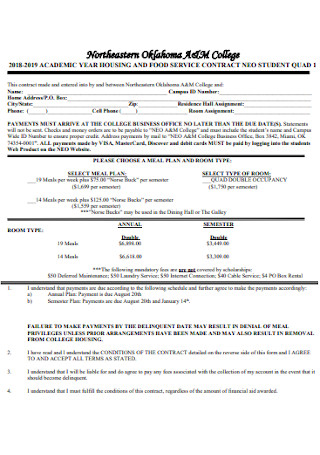
Housing and Food Service Contract
download now -
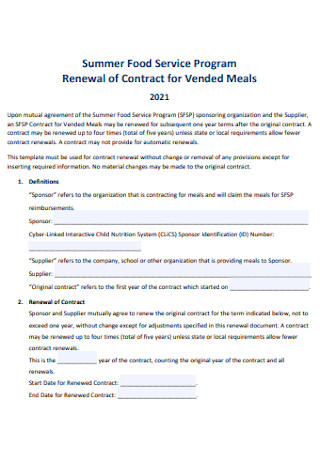
Summer Food Service Program Contract
download now -
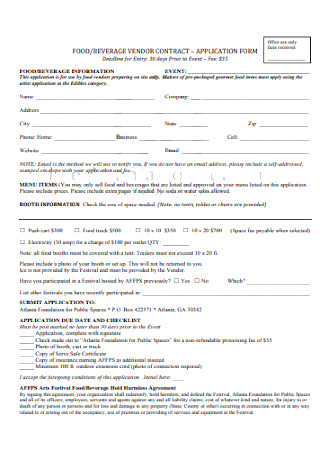
Food Vendor Contract Form
download now -
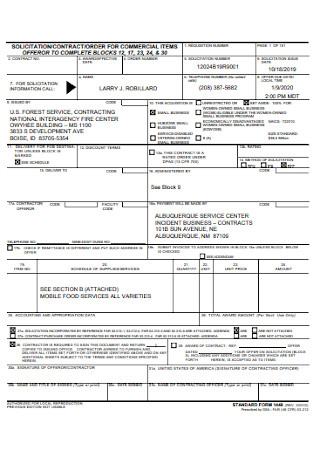
Mobile Food Contract
download now -
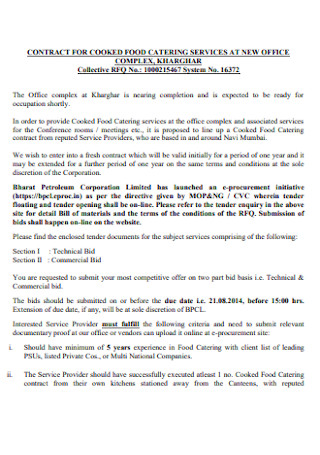
Contract for Cooked Food
download now -
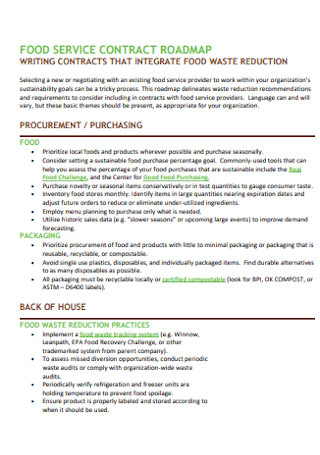
Food Service Contract Roadmap Template
download now -
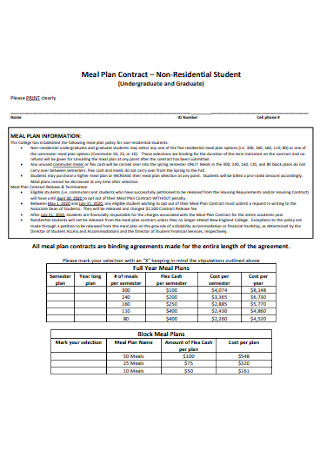
Meal Plan Contract
download now -
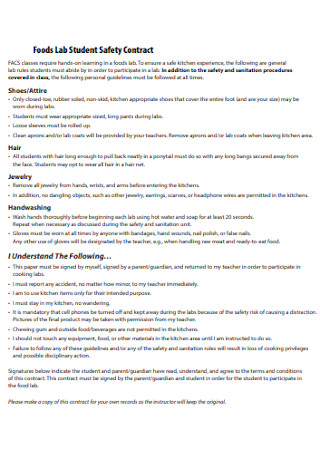
Foods Lab Student Safety Contract
download now -
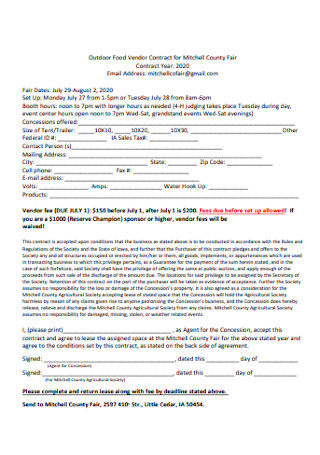
Outdoor Food Vendor Contract
download now -
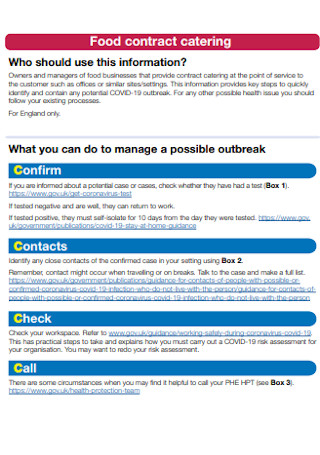
Food Catering Contract Template
download now -
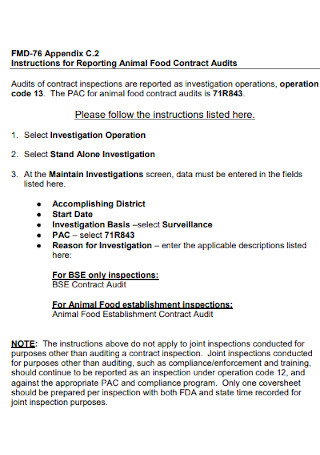
Animal Food Contract
download now -
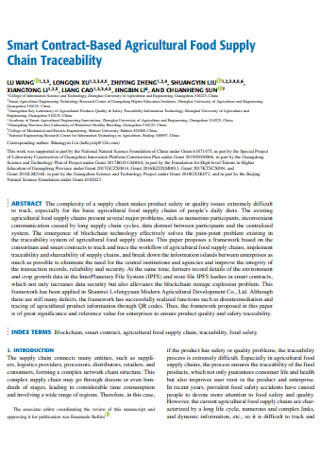
Agricultural Food Contract
download now -
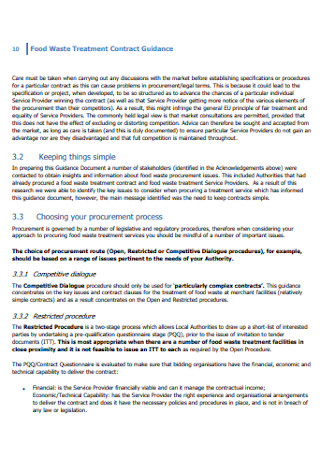
Food Waste Treatment Contract
download now -
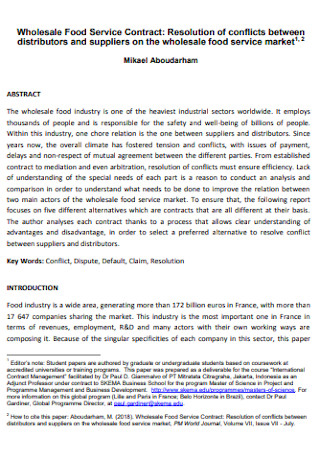
Wholesale Food Service Contract
download now -
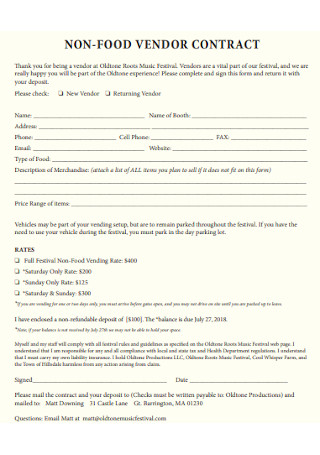
Non Food Vendor Contract
download now -
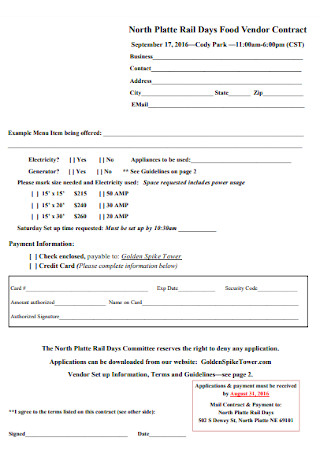
Rail Days Food Vendor Contract
download now -
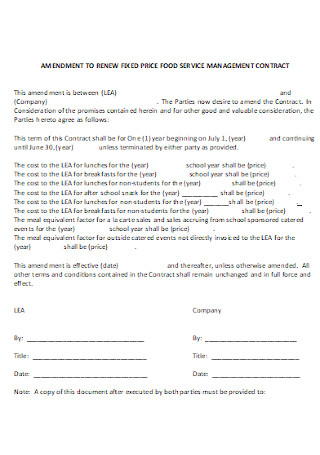
Food Service Management Contract
download now -
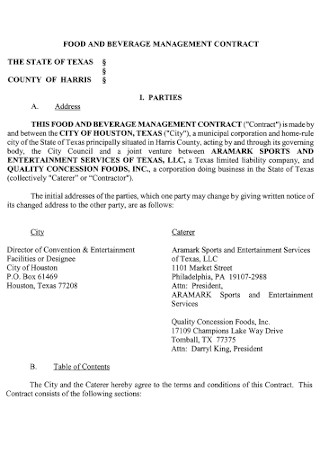
Food and Beverage Management Contract
download now -
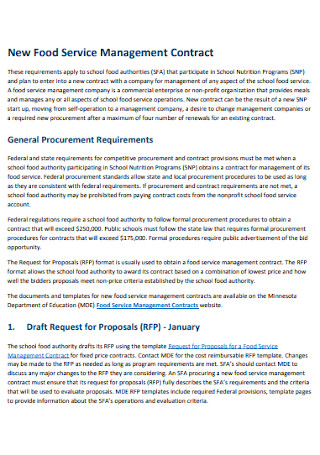
New Food Management Contract
download now -
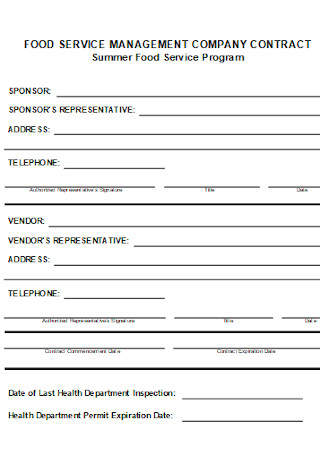
Company Food Contract
download now -
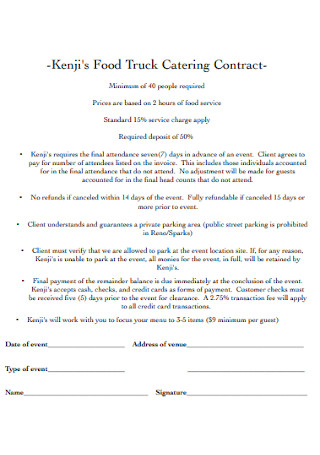
Food Truck Catering Contract
download now -
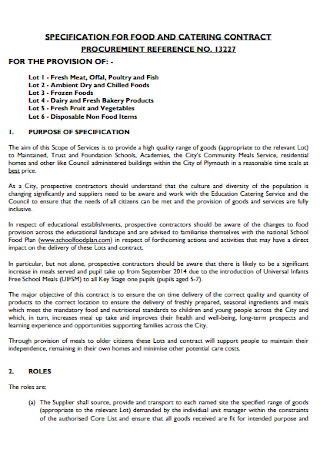
Specification for Food Catering Contract
download now -
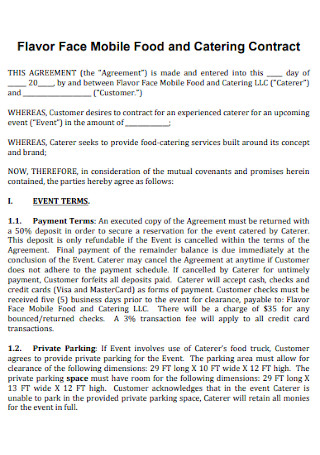
Mobile Food Catering Contract
download now -

Food Sales Contract
download now -
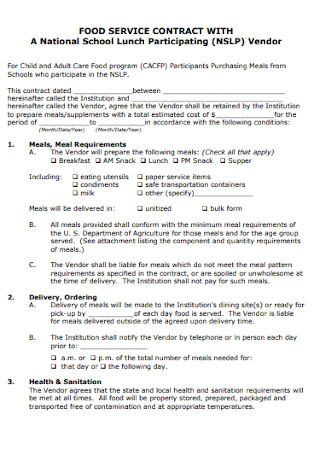
Sample Food Service Contract
download now -
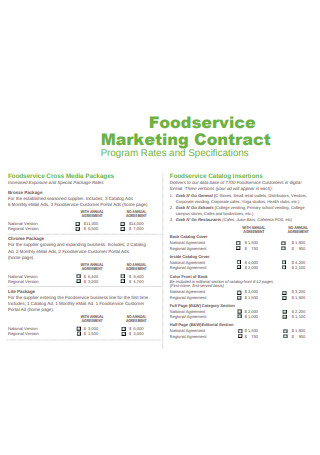
Food Service Marketing Contract
download now -
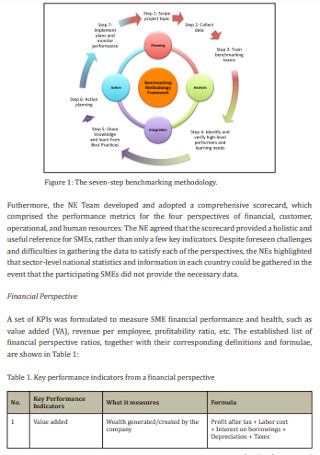
Food Manufacturing Contract
download now -
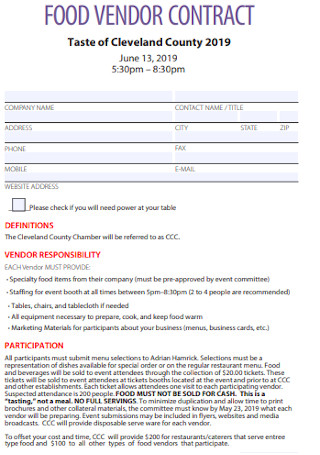
Food Vendor Contract Template
download now
FREE Food Contract s to Download
28+ Sample Food Contracts
What Is a Food Contract?
Types of Food Service Contracts
How to Make a Food Contract?
Why Is a Contract Important?
Elements of the Contract
FAQs
Who is the largest food service provider?
What is a contract food service provider?
What is the best food service company to work for?
Who is food provider in law?
What are food service companies?
What Is a Food Contract?
A food contract is a contract agreement between one party or two and a food service provider. Both parties agree on terms and conditions as they will work together within the contract’s deadline. Both parties should first discuss the terms and later on, either one of the parties should make a written contract to make it legal and enforceable by law. Whether the client hires you for an event or requires ongoing food service, it is still important to make a contract.
According to IBISWorld, there are a total of 38,175 food service businesses or contractors in the United States as of 2021 and 2.6% has increased from 2020. Most of them have been hired by the big companies to cater food for their event and hired with contracts signed. If you are a food service provider, then we suggest that you should improve your portfolio as it can give you higher chances to get hired by the big companies. With no doubt, your profit will increase as well.
Types of Food Service Contracts
When providing food service, you should expect that your clients can be public entities or private individuals. There are some food service contracts that are made for different purposes such as to help the people when a matter of emergency occurs. Others provide catering services for events such as wedding events or corporate events. Below are the types of foods ervice contracts that you can use in different cases. These types of food contracts are also available in templates on our site that are showcased above.
Now that you have known the types of food contracts, it is time for you to make one. Be sure to also check the sample templates above as they can also give you ideas and a head start in making one. Our site does not limit only to food contracts but we also have catering proposals, event checklists, daily planners, and many more.
How to Make a Food Contract?
When money is involved, it is very crucial to make a contract. Here we provide you a guide and tips on how to make a food contract. Make sure to get your materials ready as soon as you will start and that includes a computer with an editing software application, paper, pen, and as well as yourself.
Step 1: Discuss with the Client
The first thing you need to do is to discuss things with the other party. Make sure to jot down every detail so that you won’t miss anything. In this step, both parties should discuss and agree with the terms and conditions such as the payment policies, the responsibilities, and the privileges. Remember to include important details in your discussions such as the meal preferences, scheduled time, venue or location, and the number of meals to prepare.
Step 2: Get It in Writing
As soon as you are done discussing the terms with the other party, you should start writing the contract. Start with the basic info then the clauses. You should remember to consider specifying the general information such as the client’s basic information, event date and time, services offered, contact persons, and more. In the contract, it is also important for you to include the clauses such as the Indemnification Clause, Termination Clause, and Payments. If you are in a hurry, then downloading a ready-made template will make your work done in haste as it will give you a head start. You just need to edit the template by adding the terms discussed that are not included in the template and removing those that are not necessary.
Step 3: Keep It Simple
When creating the contract, there are things that you need to avoid such as legalese words or some fancy words. Keeping the sentences and paragraphs simple and concise allows the readers to understand clearly. An organized contract can also bring a better understanding to the readers. This way can help reduce the chances of misunderstandings that can be a cause of argument or being filed in a lawsuit.
Step 4: Recheck and Edit
Before both parties sign the contract, make sure to check the writings if there are misspelled words or if there are errors. If any of them are found, edit it immediately. This will make sure the contract is understandable. If either party wants to change a term and both agree, make sure to change it immediately before signing the contract. Discussing the terms and conditions before signing the contract is a must. Make sure that all parties understand and agree to what is written in the contract.
Why Is a Contract Important?
Contracts are important especially in businesses as they provide an outline of the expectations for both parties and a full understanding of the business relationship. This is to avoid claims of misunderstandings in the future that will lead to some arguments or lawsuits. It also protects both parties if the expectations in the contract are not met. Additionally, it specifies the price that is promised to pay for the services of the other party. It includes not only the terms but as proof of agreement, signatures of both parties are recommended.
Elements of the Contract
To make a contract, it has to be valid and enforceable by law. That is why these six elements of the contract will make sure your contracts are valid and enforceable. These are namely the offer, acceptance, mutual assent, consideration, capacity, and legality.
1. The Offer
The offer is the beginning of the making of the contract. It is a promise of one party to the other to pay for their services. The offer to pay the services mostly consists of money and some are trading products or lots, depending on what both parties agreed on.
2. Acceptance
If one party suggests an offer, the other can accept, reject, or counteroffer. A contract is formed if the offer is accepted, and otherwise if rejected. If the decision of the other party wants to counteroffer, there will be no contract formed yet between the parties. Acceptance is when the other party accepts or agrees with the offer unconditionally and the contract must mirror the terms and conditions of the original offer.
3. Mutual Assent
Mutual Assent or also referred to as “consent” or “mutuality of obligations” is the combination of a valid offer and acceptance between the parties, and it is also the key element of a contract. This is when both parties will enter the contract willingly and agree to the same terms and have a “meeting of the minds.” This element of a contract can also be shown by actions the parties take after the offer is made and accepted if the written contract is absent.
4. Consideration
Consideration is what is often called the trade or exchange of promises to one another. Consideration is usually but not always about money, some can be real estate, things, or action to pay for the services provided by the other party. Both parties must agree to grant something of value to the other to validate the contract.
5. Capacity
Capacity is the ability of the person to clearly understand the terms, obligations, and consequences written in the contract. Parties that are minors, people with disabilities or suffering from illnesses and anyone that is influenced by alcohol or drugs are presumed to lack the capacity to sign the contract. Those people who are unable to read or understand the language of the contract are also considered to lack capacity, however, they would gain capacity if the translated copy of the contract is provided. A capacity is that a person must understand clearly the meaning and effect of the words written in the contract. This is to avoid the other party taking advantage of one’s incapacity, or otherwise, the contract will be voided.
6. Legality
The most important rule in the contract is that it has to be legal in all ways and the contract must strictly follow the law in the jurisdiction where it is signed. The courts do not allow both parties to enter and sign an illegal contract. Some examples of illegal contracts are agreements that consist of drugs, crime, and theft.
Knowing the elements of a contract will help you build a valid and enforceable contract that will protect you if the expectations written in terms did not meet. Making a contract does not end in knowing the elements of the contract alone but also includes the clauses that consist of terms that have the conditions judging whether the expectations are met or not.
FAQs
Who is the largest food service provider?
According to the Transport Topic, the leading food service provider in 2018 is the Sysco Corp., followed by U.S. Foods and then McLane Foodservice.
What is a contract food service provider?
A contract food service provider is a contract in which a food service provider is hired by a company or an organization to provide food services every day or to an event depending on the terms of both parties agreed.
What is the best food service company to work for?
According to Vault, Pepsico, Inc. is the first in ranked as the best food and beverages companies in 2019, followed by the Coca-cola company and Tyson Foods, Inc accordingly.
Who is food provider in law?
Food provider is the one who provides or serves prepared meals for public consumption on or off its premises. They can be any vendor, entity, organization, business, group, or individual as long as they are contracted to prepare the food chosen by their client.
What are food service companies?
Food service companies or also known as the catering industry are those businesses and companies that work on preparing and serving any meal for public consumption. Examples are restaurants, school and hospital cafeterias, and catering operations.
The food service industry’s size is nearly the same as the food retailing which supplied about a total of $1.77 trillion worth of food in 2019, according to Economic Research Service, U.S. Department Of Agriculture. Food service providers have been a very great help to us to keep us fed in the days of crisis or in the days of celebrations. By the fact that they had been doing us a favor, let us not take it to advantage, thus, we should do them a favor as well in which we will sign an agreement. This will bring them security. Contracts, however, do not limit to food services, but they can be other things such as real estate, school, event planner, and more.
